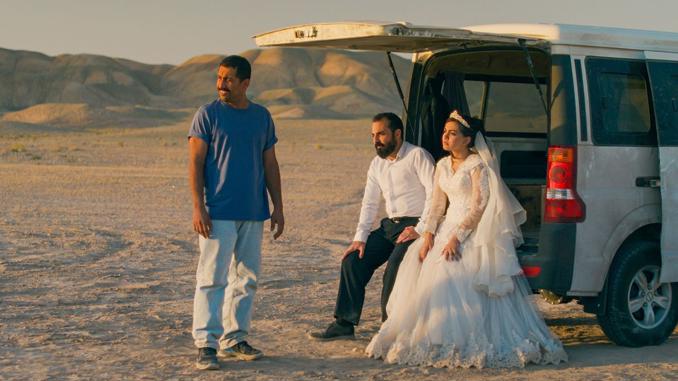It Was Just an Accident Is Jafar Panahi’s Suspenseful and Human Search for Answers

For more than six months across 2022 and 2023, director Jafar Panahi was imprisoned in Iran. The filmmaker, who began as a protege of Abbas Kiarostami, was originally sentenced in 2010 for his support of the Iranian Green Movement – although he would not go to prison for a dozen years after sentencing, the Islamic Republic of Iran banned him from filmmaking, traveling, and speaking to the international press for 20 years, effectively immediately.
Since then, Panahi’s films have been made in secret, working around the conditions of his sentence but always confronting them head-on: the provocatively-titled This is Not a Film documents his house arrest in Tehran; Taxi features the director posing as a cab driver, recording conversations with his passengers on a dash cam; No Bears is about a director remotely directing a film about Iranians fleeing the country after years of criticizing the government – Panahi cast himself as the director.
It Was Just an Accident is Panahi’s first film since being released from prison (where he had gone on a hunger strike) and it unfolds on a larger canvas than anything made since his arrest. Perhaps this is due to the bans on his filmmaking being lifted (and traveling, which meant he collected the Palme d’Or for the film in-person), but Panahi still stresses that his films are made in secret with limited resources, due to their explicit critiques of the authoritarian government and their historic and ongoing violence.
It’s apt for a film made secretly that It Was Just an Accident is defined by movement and pauses, a progression of characters leaping into action and suddenly stopping, uncertain of their next one, two, or 10 moves – sometimes including the moves they’ve already made. When a family’s car breaks down, forcing a late night stop at a garage, mechanic Vahid (Vahid Mobasseri) recognizes the squeak of the driver’s prosthetic leg and follows him until he has the opportunity to kidnap him. He’s convinced the man is Eghbal (Ebrahim Azizi), the military officer who tortured him (and many others) in prison for conspiring against the regime, and he’s on the verge of killing him before doubt enters his mind – is this even the right man?
Vahid drives around the city, pointed in the right direction to other victims of Eghbal (also nicknamed as “Peg Leg” and “The Gimp”). These coconspirators have their own combination of surety and doubt about what their captive’s fate should be, and new questions quickly compound: Is it just to kill their former captor? Are they capable of killing him? Can they even trust the opportunity that’s fallen into their laps? The story unravels at a steady clip, inviting more voices and frenetic emotions with every furtive location change, the possibility of righteous violence looking more likely and less inevitable at any given moment.
-

-

-

-

-

-

-

-

-

-

-

-

-

-

-

-

-

-

-

-

-

-

-

-

-

-

-

-

-

-

-

-

-

-

-

-

-

-

-

-








































